Many people with lactose intolerance and sensitivity to dairy turn to dairy alternatives like oat milk to reduce digestive discomfort.
But you may still be wondering whether oat milk can cause stomach discomfort, too, such as diarrhea.
Oat milk can cause diarrhea in certain individuals who have gluten sensitivity, celiac disease, or trouble digesting large amounts of fiber. Oat milk on its own is naturally gluten-free, but without a guaranteed gluten-free product, you can’t ensure that you aren’t getting cross-contaminated gluten in your oat milk.
This article will explore the potential gastrointestinal effects of drinking oat milk, such as diarrhea, bloating, gas, stomach cramps, constipation, nausea, and vomiting.
We’ll also share some tips to avoid getting diarrhea from drinking oat milk by assessing any potential allergies you may have, buying the correct type of oat milk, and more.
[lasso ref="amzn-willas-unsweetened-organic-oat-milk-32-oz-6-pack-low-sugar-1g-vegan-plant-based-non-gmo-shelf-stable-made-from-whole-grain-oats" id="7234" link_id="14822"]
Does Oat Milk Cause Diarrhea?
There are a few circumstances in which oat milk can cause enough digestive trouble to cause diarrhea.
Note that if you have a reasonably strong stomach and only drink oat milk now and then, you aren’t likely to get diarrhea from drinking it.
However, oat milk can be high in soluble fiber, have traces of gluten, and contain other ingredients that your stomach may not tolerate.
This is especially true if you have irritable bowel symptoms or have allergies to certain foods that you are or aren’t aware of.
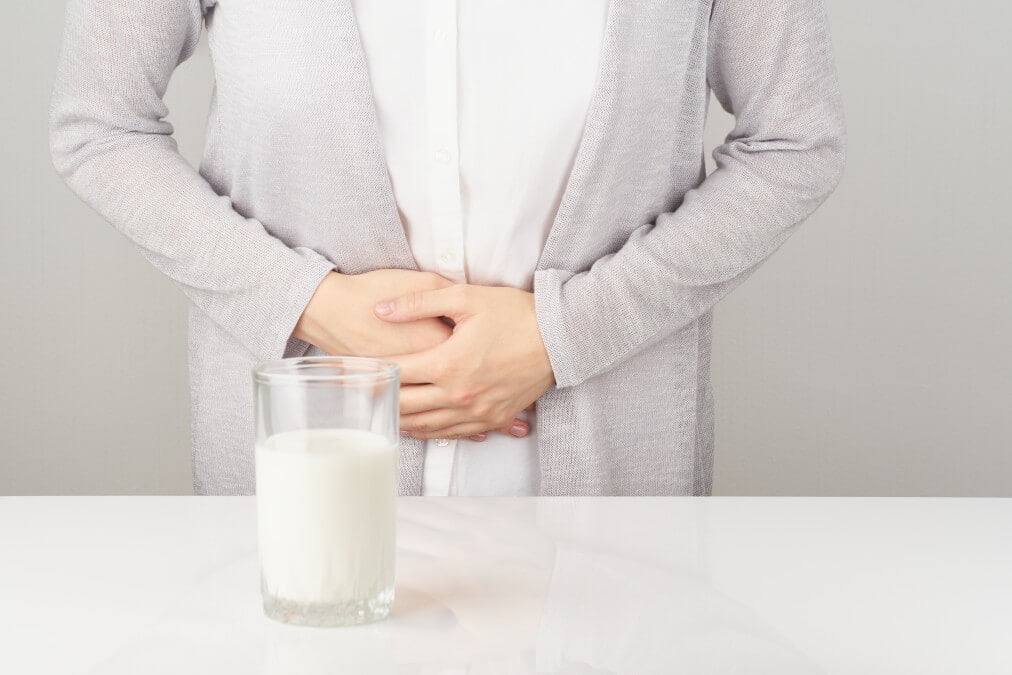
Why Does Oat Milk Cause Diarrhea?
The main reasons that oat milk causes diarrhea include the following.
Allergies to Oats
While allergies to oats aren’t as common as allergies to gluten, they do occur in some individuals.
People are generally allergic to this type of grain when their body can’t handle a protein called “avenin sativa,” found in oats.
Avenin is a glutinous protein that resembles the gluten found in wheat.
So you can see why it affects individuals who are also sensitive or intolerant to gluten.
One of the prominent symptoms of an oat allergy is diarrhea, among other digestive discomforts.
Furthermore, oat milk may trigger allergies or stomach discomfort symptoms in individuals who struggle to digest large amounts of sugar or soluble fiber.
In every cup of oats, there are roughly 50g of carbohydrates and 8g of fiber.
Too much fiber can lead to diarrhea or loose stool for some individuals.
Even though fiber is necessary for a healthy, balanced diet with good bowel movements, too much can sometimes lead to the fiber absorbing water before your intestines get the chance to.
As a result, stool moves much too quickly through your digestive tract and results in diarrhea.
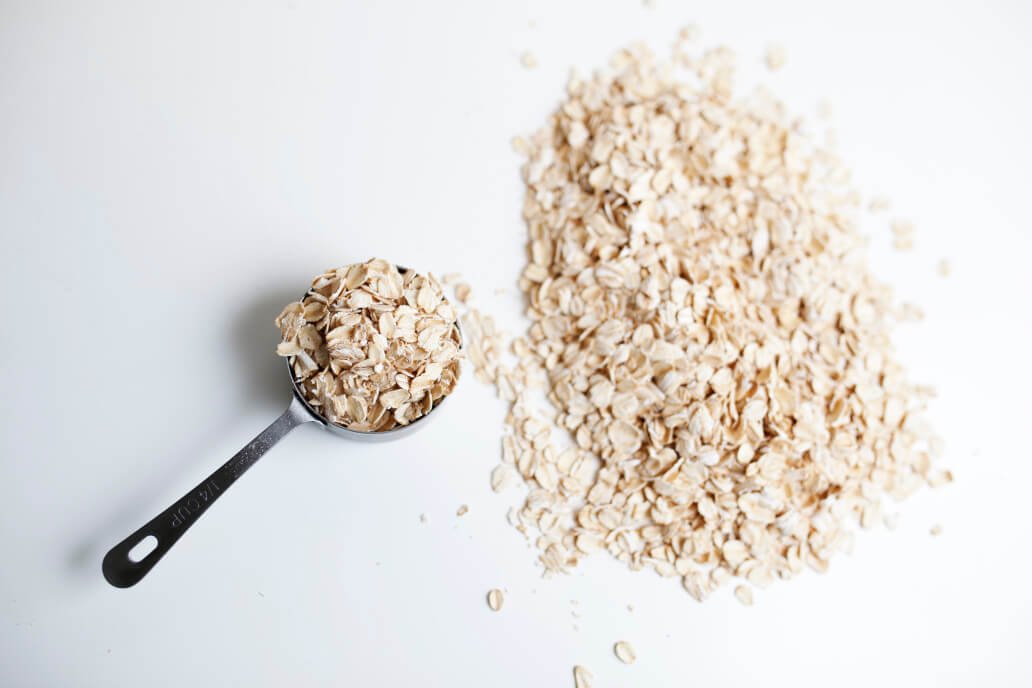
Allergy or Intolerance to Gluten
Oat milk is gluten-free, but products that are not well-vetted for cross-contamination may contain trace amounts of gluten.
And if you have celiac disease or a gluten intolerance of any kind, this can quickly become a problem.
Celiac disease is a kind of autoimmune disease that certain people inherit due to genetics.
Celiac disease causes individuals to damage their small intestines when they consume gluten.
It damages the villi in your small intestines, inhibiting nutrient absorption and slowing down digestion.
Believe it or not, more people have celiac disease than probably realize it, as it affects about 1% of people worldwide.
You might even have celiac disease without knowing it, which could be worth looking into if your stomach gets upset when you eat or drink products with gluten.
Intolerance of Added Ingredients
Furthermore, certain oat milk products have added ingredients, artificial ingredients, and other substances that may cause diarrhea.
For example, ascorbic acid, a common preservative used in oat milk products, can induce diarrhea when ingested in excess.
It’s also possible that when you’re drinking oat milk, you’re drinking it in combination with high-sugar liquids or coffee, such as in oat milk lattes.
Sometimes, the combination of a lot of sugar and fiber can lead to an upset stomach and even result in loose stool.
Again, this is because the sugar and fiber lead to lots of water entering the intestines and exiting through your stool, particularly affecting individuals with IBS.
[lasso ref="amzn-willas-unsweetened-organic-oat-milk-32-oz-6-pack-low-sugar-1g-vegan-plant-based-non-gmo-shelf-stable-made-from-whole-grain-oats" id="7234" link_id="14823"]
How to Avoid Getting Diarrhea From Oat Milk
To avoid getting diarrhea from drinking oat milk, you should examine your possible intolerances to ingredients and study the labels of oat milk products before buying them.
You might even consider making homemade oat milk to control which ingredients you are ingesting and how much of those ingredients you’re consuming.
Make Sure You Don’t Have an Oat Allergy or Intolerance
The first step you should take is to rule out any possible intolerances or allergies.
You can start by figuring out how your body reacts to oats - and the protein avenin found in them.
You may do this on your own by seeing how your body reacts when you eat oats or oat products, or you can go to an allergy specialist to determine more thoroughly.
If you can rule out oat and gluten allergies, then move on to examining your oat milk label(s).
Buy Oat Milk Without Additives And Preservatives
When picking out oat milk products, look for those whose labels list little to no artificial additives, fillers, or preservatives.
If possible, look for plain, unsweetened oat milk with just two ingredients.
You want oats (preferably organic) and water, and that’s it (especially if you have food sensitivities), IBS, or some other condition that makes it difficult to digest sugars, preservatives, and excess fiber.
Here are a few of our recommendations:
- Willa’s Unsweetened Original Oat Milk - This oat milk is organic, vegan, non-GMO, sustainably produced, low-sugar, low-fiber, and free of oil and phosphates.

- Thrive Market Organic Oat Beverage - This oat milk is USDA Organic certified, vegan, free of soy, free of preservatives, and low in fat. However, if you have gluten sensitivity or intolerance, it is processed on equipment where wheat is processed.
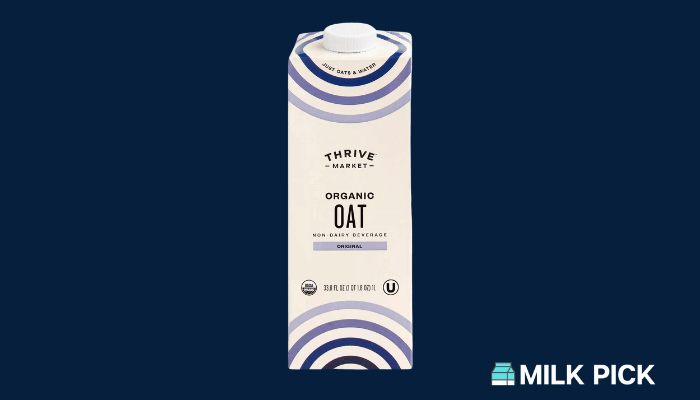
- Elmhurst Unsweetened Oat Milk - This product contains only three ingredients - whole grain oats, filtered water, and salt. It has no carrageenan, artificial flavors, added gums, or oils.
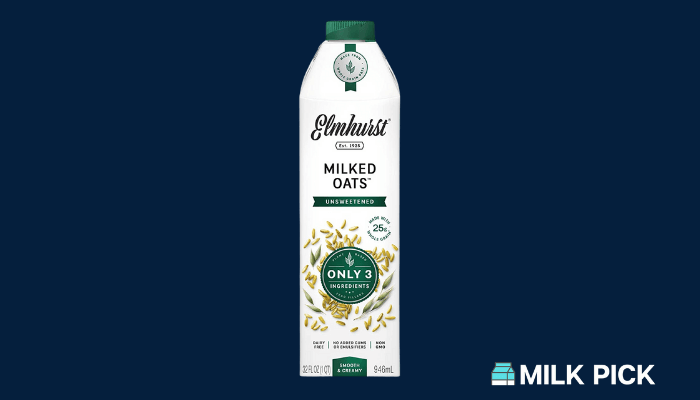
Make Your Own Oat Milk
Another way to avoid oat milk-induced diarrhea or stomach upset is to make your oat milk.
While this is arguably less convenient than buying it from a store, it allows you complete control over your ingredients.
This means that you can stick to the only two ingredients you need - oats and water.
You eliminate the use of artificial flavors, preservatives, and sweeteners that typically upset one’s stomach when drinking oat milk.
What to Do If You Get Diarrhea From Oat Milk
We can’t always avoid the onset of GI symptoms, such as diarrhea.
At times, drinking oat milk may induce loose stool, depending on what else you’ve eaten that day and how much oat milk you’ve drunk.
Natural Remedies for Diarrhea
If you get diarrhea from drinking oat milk, you can first try to ease the discomfort with some natural remedies.
For example, you can follow a bland or “BRAT” diet (bananas, rice, applesauce, and toast) following diarrhea symptoms.
Eating bland foods low in fat, spices, and other heavy seasonings will minimize discomfort as you wait out the loose bowel movements.
Furthermore, bananas are a great natural stool hardener. Specifically, underripe or slightly green bananas can constipate you or harden your stool in light of diarrhea.
Changing Your Oat Milk Diet
You can also address the issue of diarrhea from drinking oat milk by changing the oat milk products that you consume.
If you are currently using oat milk with added preservatives, sugars, or too much fiber, you may need to find oat milk with minimal ingredients.
Or, you can make your own oat milk and adjust the recipe as necessary while you monitor your GI symptoms.
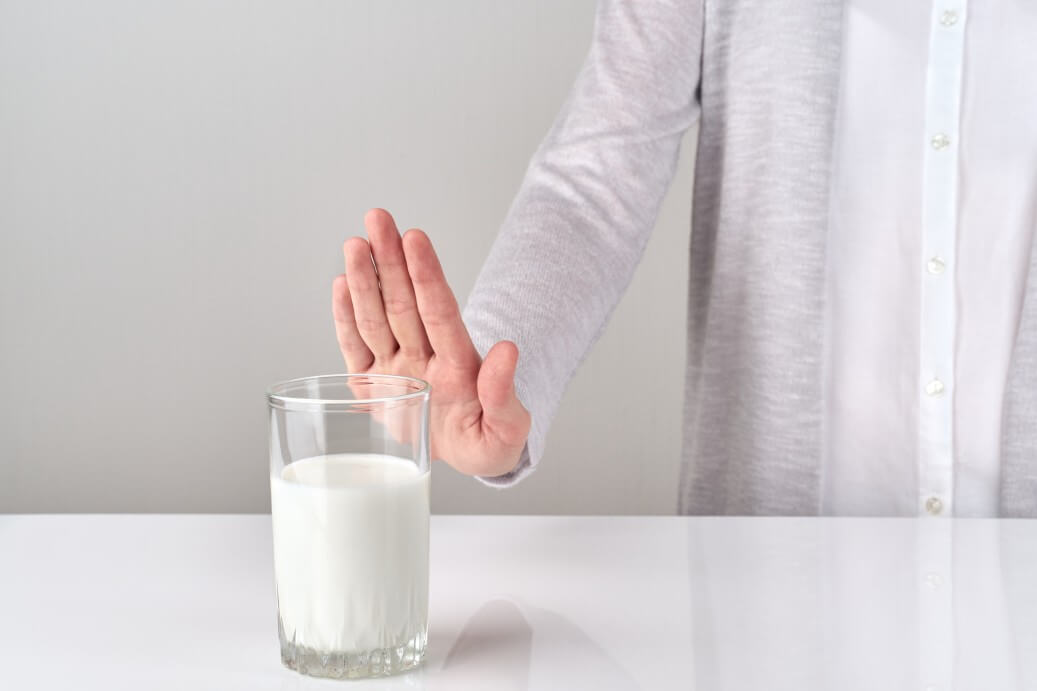
Can Oat Milk Cause Digestive Issues?
Just as drinking oat milk can cause diarrhea in some individuals, it can also cause other digestive issues, which we’ll explore in more detail below.
Can Oat Milk Cause Gas?
Drinking oat milk can cause flatulence, primarily if you struggle to digest fiber in your diet.
According to a Gut study published on PubMed Central, high-fiber diets can lead to “pronounced gaseous symptoms” in some individuals.
Flatulence is often a byproduct of your body increasing fiber-digesting bacteria in the gut. So, if you want to cut back on flatulence from drinking oat milk, you may consider buying low-fiber oat milk.
Can Oat Milk Cause Bloating?
Oat milk may also cause bloating in some individuals who are sensitive to high-fiber foods and drinks.
This, again, is because your gut needs to produce extra fiber-digesting bacteria, which causes bloating symptoms.
This symptom is especially likely if you aren’t used to drinking high-fiber beverages and suddenly start drinking an oat milk product with a lot of fiber.
Can Oat Milk Cause Stomach Cramps?
Often, stomach cramps are a result of symptoms like bloating and flatulence.
This is because the gas can get built up inside your intestines, resulting in pain and discomfort.
Bloating can also result in feelings of tightness or pressure in the stomach region.
Furthermore, malabsorption of carbohydrates (sugars), often present in oat milk products, can lead to bloating symptoms.
Can Oat Milk Cause Nausea and Vomiting?
Yes, oat milk can cause nausea and vomiting, particularly if you have an oat allergy that keeps you from breaking down oat proteins.
And for individuals with IBS or other stomach sensitivities, these symptoms can worsen if the oat milk formula is rich in excess sugars, preservatives, and other additives.
Can Oat Milk Cause Constipation?
Finally, it’s good to note that constipation is among the potential adverse reactions to drinking oat milk.
A high-fiber diet has a different effect for some people and may lead to constipation and firm stools.
So when drinking oat milk with whole-grain oats high in fiber content, you may notice that you struggle to make a bowel movement easily.
Therefore, you may need to switch to an oat milk product with lower soluble fiber content.
Related: Does Almond Milk Cause Constipation?
FAQ
Can Oat Milk Cause Diarrhea in Toddlers?
Yes, if a toddler has a sensitivity or allergy to oats (with or without your knowledge), they may have an adverse reaction to oat milk.
This may result in a response called food protein-induced enterocolitis syndrome (FPIES), which has a primary symptom of diarrhea.
This diarrhea reaction may occur following initial symptoms of vomiting in toddlers or infants, specifically.
Related: Can Babies Drink Oat Milk?
Can Oat Milk Cause Diarrhea in Adults?
Yes, oat milk can cause diarrhea in adults due to cross-contamination of gluten, which affects individuals with celiac disease or gluten intolerance.
It can also cause diarrhea in adults with oat allergies and sensitivities to high-fiber or high-sugar diets.
Can I Drink Oat Milk if I Have Diarrhea?
If you have diarrhea you should avoid drinking oat milk.

Final Thoughts
When asking the question, “can oat milk cause diarrhea?” it’s essential to consider your food sensitivities and allergies and the particular ingredients in your product.
Oat milk can cause diarrhea in individuals with IBS, celiac disease, oat allergies, and sensitivity to high-fiber food and drink.
To avoid diarrhea and other adverse GI symptoms from drinking almond milk, rule out any potential allergies, then assess the ingredient list on your product labels.
Stick to products that are organic and contain mainly water and whole grain oats, with little to no additives. You can also make homemade oat milk to take extra precautions.
